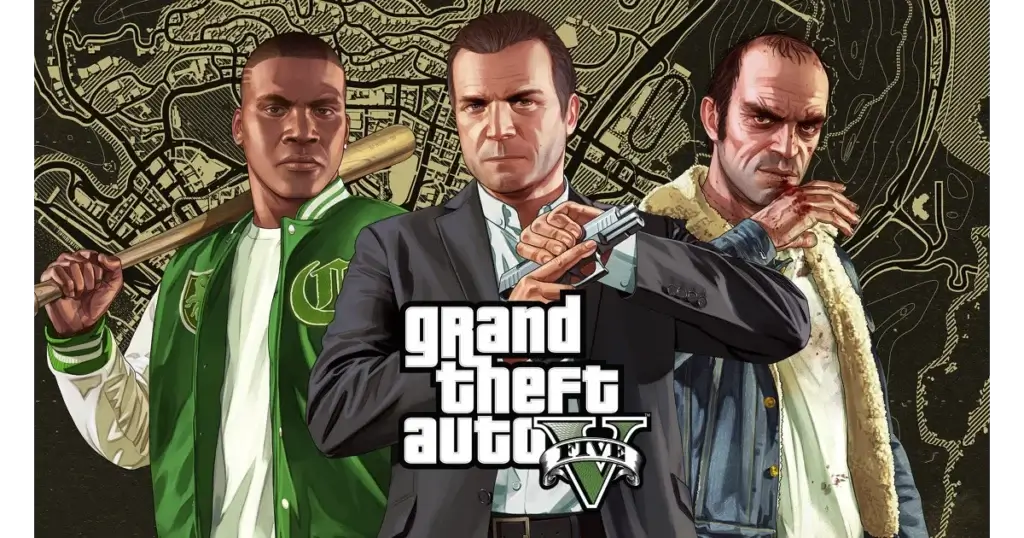Introduction
The Grand Theft Auto (GTA) series is one of the most iconic video game franchises of all time. For over two decades, it has captured the attention of millions of gamers worldwide with its unique blend of open-world gameplay, narrative depth, and boundary-pushing features.
Whether you’re a seasoned gamer, a business owner in the gaming industry, or a tech enthusiast, understanding the evolution of GTA is essential to grasping the gaming industry’s broader impact.
In this article, we’ll explore the history, gameplay mechanics, cultural influence, and future potential of Grand Theft Auto, offering insights that go beyond simple gameplay.
The Origins of Grand Theft Auto: A Revolutionary Game
Grand Theft Auto was first released in 1997 by Rockstar Games, known for creating some of the most successful and controversial video games in history. The original GTA introduced players to a top-down, 2D map where they could engage in various criminal activities. This unique concept was groundbreaking for its time, providing a blend of freedom and lawlessness that attracted a diverse range of players.
Key Milestones in GTA’s Evolution:
- GTA III (2001): A pivotal moment for the franchise, GTA III moved to a 3D open world, setting the standard for future open-world games.
- GTA: Vice City (2002): Set in the 1980s, this iteration took advantage of its vibrant Miami-inspired city, offering an immersive soundtrack and memorable characters.
- GTA: San Andreas (2004): A massive expansion of the formula, with a sprawling map, RPG elements, and a diverse array of missions, making it one of the most beloved games of its time.
- GTA V (2013): Set in the fictional city of Los Santos, this game took the series to new heights with stunning graphics, an expansive open world, and a groundbreaking multiplayer mode, GTA Online.
Gameplay Mechanics: The Heart of GTA’s Success
The gameplay mechanics of Grand Theft Auto are complex and multifaceted, contributing to its lasting appeal. From the open-world exploration to the narrative-driven missions, here’s a breakdown of what makes the gameplay of GTA unique:
- Open-World Exploration: One of the defining features of GTA is its massive open world. Players can explore the city, interact with NPCs, engage in side activities, and complete missions at their own pace. This sense of freedom is a hallmark of the series, encouraging exploration and experimentation.
- Variety of Vehicles: Whether it’s driving cars, boats, helicopters, or motorcycles, GTA offers a wide range of vehicles that add excitement and variety to the gameplay. Players can steal, customize, and even race vehicles, adding a layer of depth to the experience.
- Criminal Activities and Freedom: The central theme of GTA revolves around crime, and players are encouraged to engage in a variety of criminal activities, from heists to car chases. The moral ambiguity of the game adds to its allure, allowing players to make decisions that are often at odds with traditional societal norms.
- Story-Driven Missions: While open-world freedom is key, the series has also been praised for its intricate and engaging stories. Each installment in the franchise typically follows a protagonist with complex motivations, navigating a world full of betrayal, loyalty, and conflict. These narratives keep players hooked, even as they roam the virtual cities.
- Multiplayer – GTA Online: Launched alongside GTA V, GTA Online revolutionized multiplayer gaming by offering a persistent, online world where players could team up, engage in heists, purchase properties, and take part in a variety of competitive and cooperative activities. The game’s constantly updated content, events, and new modes keep the community active, long after the game’s original release.
The Cultural Impact of GTA
Beyond its gameplay, Grand Theft Auto has had a significant cultural impact. The series has sparked debates about violence in video games, freedom of expression, and the role of interactive media in shaping societal norms. However, it has also influenced numerous aspects of popular culture, from movies and TV shows to music and fashion.
Key Cultural Contributions of GTA:
- Influence on Other Games: GTA’s open-world formula has inspired countless other video games, including titles like Watch Dogs, Saints Row, and Red Dead Redemption. Its focus on freedom and immersion has set the bar for modern game design.
- Music and Soundtracks: The music in GTA games has been widely praised for its authenticity and diversity. Each game features a curated selection of radio stations that reflect the culture and time period of the game’s setting. From 80s synthwave in Vice City to modern hip-hop and electronic beats in San Andreas and GTA V, the soundtracks have become iconic in their own right.
- Narrative and Satire: The GTA series is known for its sharp, satirical take on American culture, politics, and society. Through exaggerated characters, humorous dialogue, and over-the-top scenarios, GTA often serves as a critique of various societal issues. It explores themes such as corruption, greed, inequality, and the pursuit of the American Dream, all wrapped in a dark comedic tone.
- Controversy and Debate: GTA has frequently come under fire for its depiction of violence, crime, and explicit content. Critics have argued that the game promotes harmful behavior, while supporters point to the series’ satire and the creative freedom it represents. Despite the controversies, GTA continues to sell millions of copies and attract a devoted fanbase.
GTA’s Influence on Technology and Game Development

GTA’s technological advancements have helped shape the gaming industry, particularly in areas such as AI, graphics, and online gaming. The series has pushed the boundaries of what is possible in video game development, influencing everything from physics engines to AI behaviors.
- Graphics and Realism: Each new iteration of GTA has introduced significant leaps in graphical fidelity. GTA V, for example, features an incredibly detailed open world with lifelike lighting, weather systems, and realistic character models. The game’s visual quality is still regarded as one of the best in the industry, even years after its release.
- AI and NPC Behavior: The non-playable characters (NPCs) in GTA are designed to act and react in dynamic ways, contributing to the immersive nature of the game. Their behavior, such as reacting to player actions, engaging in conversations, or even driving in traffic, creates a world that feels alive and unpredictable.
- Online Multiplayer Evolution: GTA Online is a prime example of how multiplayer games can evolve over time. With constant updates, new content, and seasonal events, it has created a persistent world that keeps players coming back for more. This approach to live service games has become a model for other online multiplayer titles.
The Future of Grand Theft Auto: What Lies Ahead?
The future of GTA looks brighter than ever, with ongoing rumors and speculation about the next major installment in the series, commonly referred to as GTA VI. While Rockstar Games has been tight-lipped about details, it’s clear that the company is working hard to push the boundaries of what’s possible in open-world gaming.
What We Expect from GTA VI:
- Advanced AI and Immersive Worlds: GTA VI is likely to feature even more advanced AI, creating more lifelike and reactive NPCs. The open-world environment will likely be larger and more dynamic, with realistic weather systems, evolving storylines, and interactive cities.
- Virtual Reality (VR) and Augmented Reality (AR): With the rise of VR and AR technologies, it’s not far-fetched to imagine GTA integrating these immersive elements into its future releases. Imagine stepping into the shoes of a criminal in a fully immersive world.
- New Narrative Directions: Rockstar Games has always been known for its captivating stories, and GTA VI will likely continue that tradition. Players may see new protagonists, settings, and themes, exploring new areas of the world while addressing modern issues in innovative ways.
Conclusion
Grand Theft Auto has been at the forefront of the gaming industry for decades, continually evolving and redefining what video games can achieve.
From its groundbreaking open-world gameplay to its lasting cultural impact, GTA has become more than just a game – it’s a phenomenon that has shaped gaming as we know it. As we look to the future, it’s clear that GTA will continue to influence both the gaming industry and popular culture for years to come.
